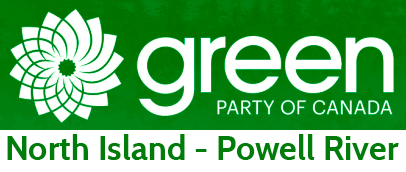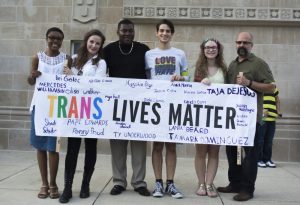The news is dominated by two things these days: the COVID-19 pandemic and systemic racism, particularly systemic racism made manifest by police forces. This post includes two perspectives on that question: One from the perspective of a law enforcement officer, and one from the perspective of a law enforcement supervisor.
Part 1: Racism in Policing: One Copper’s Observation
by Jim MacDougall
I joined a (major) Canadian police force, in 1980. I use the term “force” because it was still referred to that, even though it was actually titled a “service.” Police departments have always been considered somewhat paramilitary. Some have tried to change and be more community based, as did the Service I joined.
I was very young, very naive, and quite ignorant when I took the oath. I went from a small town existence to the “big city.” Being a police officer had been a dream of mine since I was 14 years old.
When I hit the street after six months of training, it was exciting! At night we responded to every type of call one could imagine. It was pretty much like the movies! Lights, sirens and drama. I was out there, responding to situations, helping people, righting the wrongs, and bringing about justice.
I certainly did not believe I was a racist. I strove to treat everyone equally and fairly. You see, I grew up in a typical Canadian small town, middle class neighbourhood. The town was almost 100% white. Growing up I was subjected to the same T.V. shows, movies and language everyone else was. There was lots of racist language being used, but it was never considered racist so therefore it was never identified as racist and corrected.
As a young police officer, I had interaction with many different ethnic persons while performing my duties. Unfortunately and regrettably, many of my fellow officers used racist and derogatory expletives when talking about calls, arrests and even victims of crime. There was an “us against them” feeling and attitude. Not just people of different races and colour, but ordinary white people also. I recall a very senior, very tough copper telling me once, “I’m not a racist. I hate everyone equally!”
Although I always felt uncomfortable with this language, I will admit I began to use the same language and got sucked into the “us against them” culture. I became indifferent to anyone of colour or, for that matter, anyone simply struggling in life. This was especially true in regard to the indigenous population. As the prevailing attitudes went, they lived on reserves; got free money from the government; and most of the ones we dealt with were simply drunks. As I said, I was naive and ignorant. I focused on the call, the investigations, and the gathering of evidence without even a thought to the plight of these people. I knew nothing about colonialism, attempted government sanctioned genocide, cultural or otherwise, or the atrocities perpetrated within residential schools. I knew little of the discrimination I was perpetuating by being silent and not questioning these attitudes.
I can honestly say I never once used any unreasonable force on anyone of any race, but in retrospect I was turning a blind eye to racism all around me; therefore, I was part of the problem. I recognize that now.
I once worked with a First Nations member for a short period of time. I respected him greatly as a police officer. However, he was somewhat violent and often referred to indigenous persons in derogatory ways. I did not know how to comprehend or confront this, and simply ignored it.
I witnessed many racist acts within the Service. Nothing violent like we have witnessed these days, but looking back, the racism was there and it was an act of violence in its own right.
It wasn’t until later in my career when I began concentrating my policing duties on investigating violent crime that I became fascinated with why people use violence and why they lived the way they did. So, to better myself, I began attending university, taking courses in sociology, anthropology, and psychology. It was then I began to understand a little about the human animal. I began to have more empathy for people struggling with poverty, poor health and substandard living conditions. But still, I did not recognize or understand racism.
That has changed for me now. I’ve been retired for 14 years and during that time I have watched the killing of people of colour, the inquiry into Missing and Murdered Indigenous Women and Girls (MMIWG), and learned about systemic racism by governments and our education system. The same government and educational system I had trusted to guide and teach me. I’ve learned about the internment of Japanese Canadians during the Second World War. In fact my uncle was interned as a child. I’ve met First Nations people who experienced violence and horrific abuse within the Residential School system. I’ve personally heard their stories and have been outraged at the criminality of this treatment.
I’ve asked, why am I just learning about this now? I now realize how our governments, leaders, and education systems fail so many, including myself. I am still learning and still trying to comprehend racism, but today I confront it. If I hear a derogatory racial term used in a conversation, I will call that speaker out. I believe in reconciliation and continue to investigate everything I hear and read, to try and understand where we came from and how we got here, with the desire to move forward with factual information.
When I reflect back on my experience as a law enforcement officer, I received copious amounts of training in a multitude of police related activities, but nothing in regards to the history of racism. Likewise, growing up, I learned nothing about colonialism or racism, only history that was, as it turns out, not accurate and written to hide atrocities.
There must be more focus on these issues at all levels of education. History books must be scrutinized and the full story told, so when young people complete their education and head out into this world they fully understand how and why we got here. When it comes to vocations, especially in public service, and double especially in public service like the justice system, job-specific training must be a key component.
In this way, when a young constable hits the street as a newly minted police officer, he or she won’t be as naive and ignorant as I was.
George Floyd had ‘violent criminal history’: Minneapolis police union chief
Part 2: Kick ‘Em to the Curb Early
by Pat Carl
Wellness checks gone bad: Chantel Moore, a Nuu-chah-nulth woman from the Tla-o-qui-aht First Nation in BC, shot in Edmundston, New Brunswick. Rodney Levi, a Mi’kmaw man from the Metepenagiag First Nation, shot near Miramichi, NB. Indo-Canadian, Ejaz Choudry, shot in Mississauga, Ontario. Asian-Canadian nursing student, Mona Wang, dragged from her room, though the hallway, in Kelowna, BC.
All these wellness checks performed in the month of June by the heavy hand of either local or RCMP law enforcement officers.
Are these examples of systemic racism or are these just bad cops behaving badly?
Perhaps it’s both.
For now, let’s discuss what can be done to kick bad cops to the curb.
First off, and most importantly, organizations need to deal with bad cops early in their careers.
I had a new hire at Edmonton, Alberta Preclearance who sent flags up for me as soon as he entered on duty. He lied to me about breaking a piece of equipment. Then he slept at his desk. Then he ate fruit confiscated from passengers so that our Agriculture Inspectors couldn’t verify whether or not they had any creepy crawlies in them. Then he flashed his badge in a bar to the delight of some and the dismay of others.
All of these incidents required a note to the officer’s personnel file. Date, time, description of the incident and a face-to-face discussion.
I was so concerned about the officer that I called the Service’s Human Resources Department to ask their help in developing a case for removal. And believe me, a case for removal requires lots of proof, lots of paperwork, lots of late-night writing.
To give a heads up, I spoke to the union rep about my intention to fire the officer. I had a good relationship with him, and he actually said, “Thank god. Can you imagine this guy transferred to a land border and given a gun?”
Nope.
The officer in question continued to act badly when he had the brilliant idea of stopping all the airport cleaners who came into the Preclearance area and checking their carts.
“Those A-rabs may have bombs with them, you know,” he said.
“What Arabs are you talking about? Do you think Mr. Singh is an Arab?
“Yes, the old guy with the turban,” he said.
The final straw was when a traveler asked to speak to me. He showed me his Lebanese passport and told me that the officer on aisle 3 (guess who?) had called the Arabic writing inside “chicken scratch.”
Soon after, I fired the officer with the full support of the union, my immediate managers, and the higher-ups in DC.
Consider these suggestions which address how to kick bad cops to the curb:
- Besides completing thorough background checks, all potential officers should receive in-depth psychological testing. Weed out the bad ones before you spend money training them.
- Increase the length of probationary periods to at least one year. Bad cops can’t hide badness for that long.
- Train supervisors in the art of employee management to include the extensive paperwork required to dismiss unsuitable probationary employees. The pen is mightier than the sword.
- Require that supervisors learn the union contract backwards and forwards and that they build strong, professional relationships with union reps.
- Create a national database of police officers fired for misconduct so they can’t move to another jurisdiction and continue being bad cops.
Systemic racism attracts and facilitates bad cops. Getting rid of systemic racism is the full meal deal, but in the meantime let’s get rid of the bad cops.




